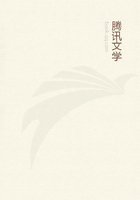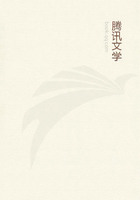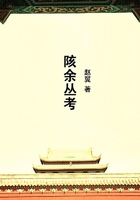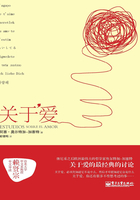Pro.Certainly.
Soc.And these were the names which I adduced of the rivals of pleasure?
Pro.Very true, Socrates.
Soc.In the next place, as to the mixture, here are the ingredients, pleasure and wisdom, and we may be compared to artists who have their materials ready to their hands.
Pro.Yes.
Soc.And now we must begin to mix them?
Pro.By all means.
Soc.But had we not better have a preliminary word and refresh our memories?
Pro.Of what?
Soc.Of that which I have already mentioned.Well says the proverb, that we ought to repeat twice and even thrice that which is good.
Pro.Certainly.
Soc.Well then, by Zeus, let us proceed, and I will make what Ibelieve to be a fair summary of the argument.
Pro.Let me hear.
Soc.Philebus says that pleasure is the true end of all living beings, at which all ought to aim, and moreover that it is the chief good of all, and that the two names "good" and "pleasant" are correctly given to one thing and one nature; Socrates, on the other hand, begins by denying this, and further says, that in nature as in name they are two, and that wisdom partakes more than pleasure of the good.Is not and was not this what we were saying, Protarchus?
Pro.Certainly.
Soc.And is there not and was there not a further point which was conceded between us?
Pro.What was it?
Soc.That the good differs from all other things.
Pro.In what respect?
Soc.In that the being who possesses good always everywhere and in all things has the most perfect sufficiency, and is never in need of anything else.
Pro.Exactly.
Soc.And did we not endeavour to make an imaginary separation of wisdom and pleasure, assigning to each a distinct life, so that pleasure was wholly excluded from wisdom, and wisdom in like manner had no part whatever in pleasure?
Pro.We did.
Soc.And did we think that either of them alone would be sufficient?
Pro.Certainly not.
Soc.And if we erred in any point, then let any one who will, take up the enquiry again and set us right; and assuming memory and wisdom and knowledge and true opinion to belong to the same class, let him consider whether he would desire to possess or acquire-I will not say pleasure, however abundant or intense, if he has no real perception that he is pleased, nor any consciousness of what he feels, nor any recollection, however momentary, of the feeling,-but would he desire to have anything at all, if these faculties were wanting to him? And about wisdom I ask the same question; can you conceive that any one would choose to have all wisdom absolutely devoid of pleasure, rather than with a certain degree of pleasure, or all pleasure devoid of wisdom, rather than with a certain degree of wisdom?
Pro.Certainly not, Socrates; but why repeat such questions any more?
Soc.Then the perfect and universally eligible and entirely good cannot possibly be either of them?
Pro.Impossible.
Soc.Then now we must ascertain the nature of the good more or less accurately, in order, as we were saying, that the second place may be duly assigned.
Pro.Right.
Soc.Have we not found a road which leads towards the good?
Pro.What road?
Soc.Supposing that a man had to be found, and you could discover in what house he lived, would not that be a great step towards the discovery of the man himself?
Pro.Certainly.
Soc.And now reason intimates to us, as at our first beginning, that we should seek the good, not in the unmixed life but in the mixed.
Pro.True.
Soc.There is greater hope of finding that which we are seeking in the life which is well mixed than in that which is not?
Pro.Far greater.
Soc.Then now let us mingle, Protarchus, at the same time offering up a prayer to Dionysus or Hephaestus, or whoever is the god who presides over the ceremony of mingling.
Pro.By all means.
Soc.Are not we the cup-bearers? and here are two fountains which are flowing at our side: one, which is pleasure, may be likened to a fountain of honey; the other, wisdom, a sober draught in which no wine mingles, is of water unpleasant but healthful; out of these we must seek to make the fairest of all possible mixtures.
Pro.Certainly.
Soc.Tell me first;-should we be most likely to succeed if we mingled every sort of pleasure with every sort of wisdom?
Pro.Perhaps we might.
Soc.But I should be afraid of the risk, and I think that I can show a safer plan.
Pro.What is it?
Soc.One pleasure was supposed by us to be truer than another, and one art to be more exact than another.
Pro.Certainly.
Soc.There was also supposed to be a difference in sciences; some of them regarding only the transient and perishing, and others the permanent and imperishable and everlasting and immutable; and when judged by the standard of truth, the latter, as we thought, were truer than the former.
Pro.Very good and right.
Soc.If, then, we were to begin by mingling the sections of each class which have the most of truth, will not the union suffice to give us the loveliest of lives, or shall we still want some elements of another kind?
Pro.I think that we ought to do what you suggest.
Soc.Let us suppose a man who understands justice, and has reason as well as understanding about the true nature of this and of all other things.
Pro.We will suppose such a man.
Soc.Will he have enough of knowledge if he is acquainted only with the divine circle and sphere, and knows nothing of our human spheres and circles, but uses only divine circles and measures in the building of a house?
Pro.The knowledge which is only superhuman, Socrates, is ridiculous in man.
Soc.What do you mean? Do you mean that you are to throw into the cup and mingle the impure and uncertain art which uses the false measure and the false circle?
Pro.Yes, we must, if any of us is ever to find his way home.
Soc.And am I to include music, which, as, I was saying just now, is full of guesswork and imitation, and is wanting in purity?
Pro.Yes, I think that you must, if human life is to be a life at all.


